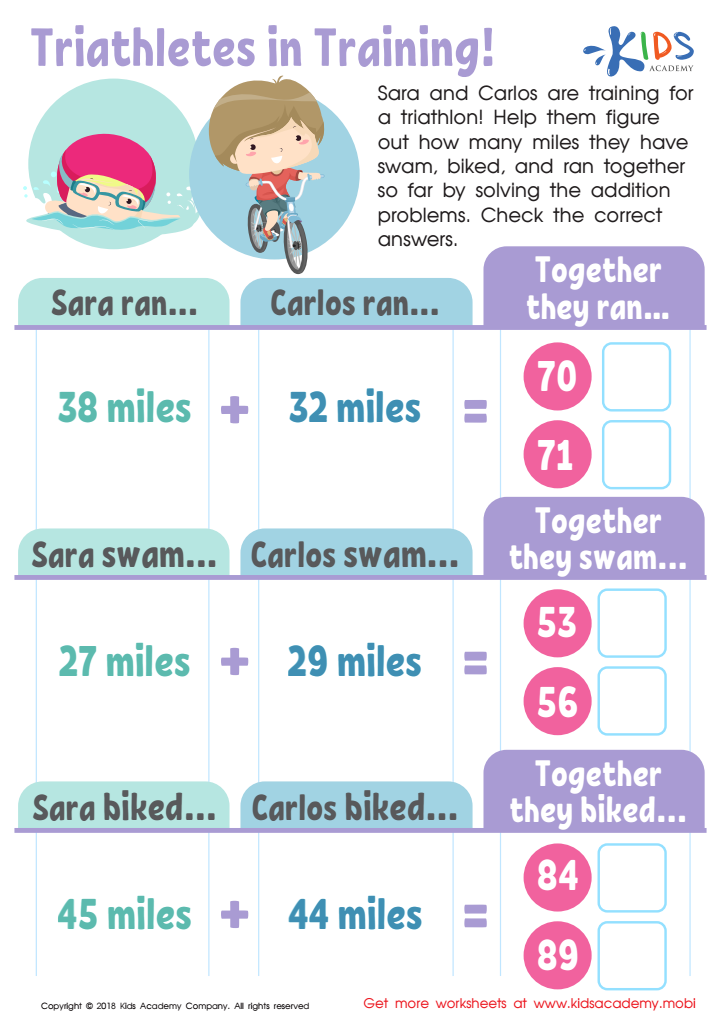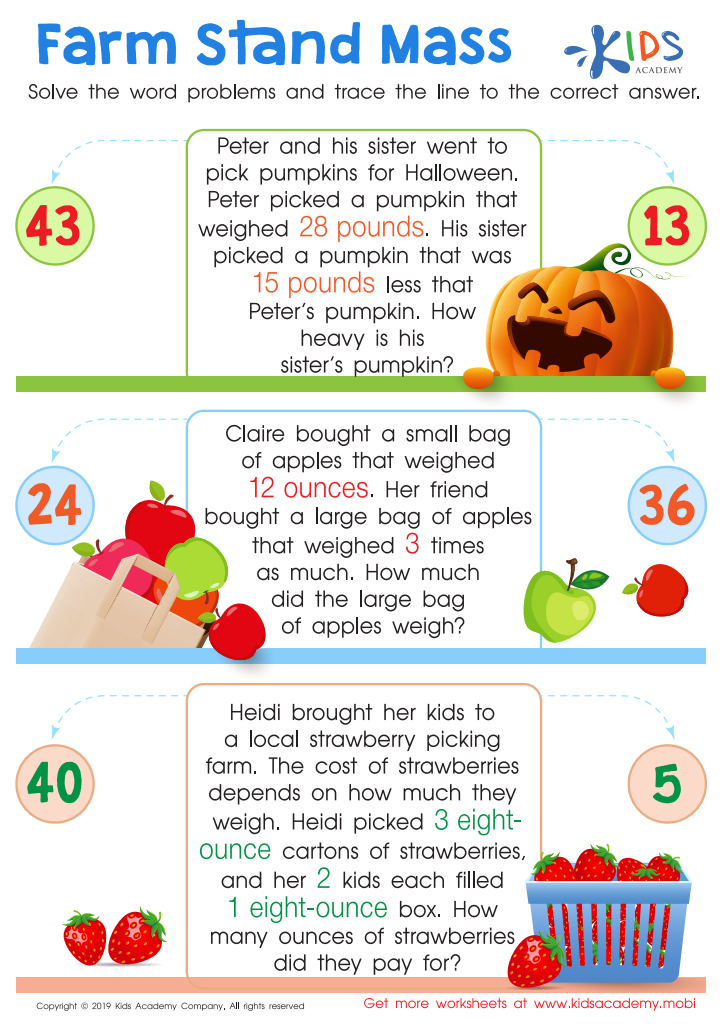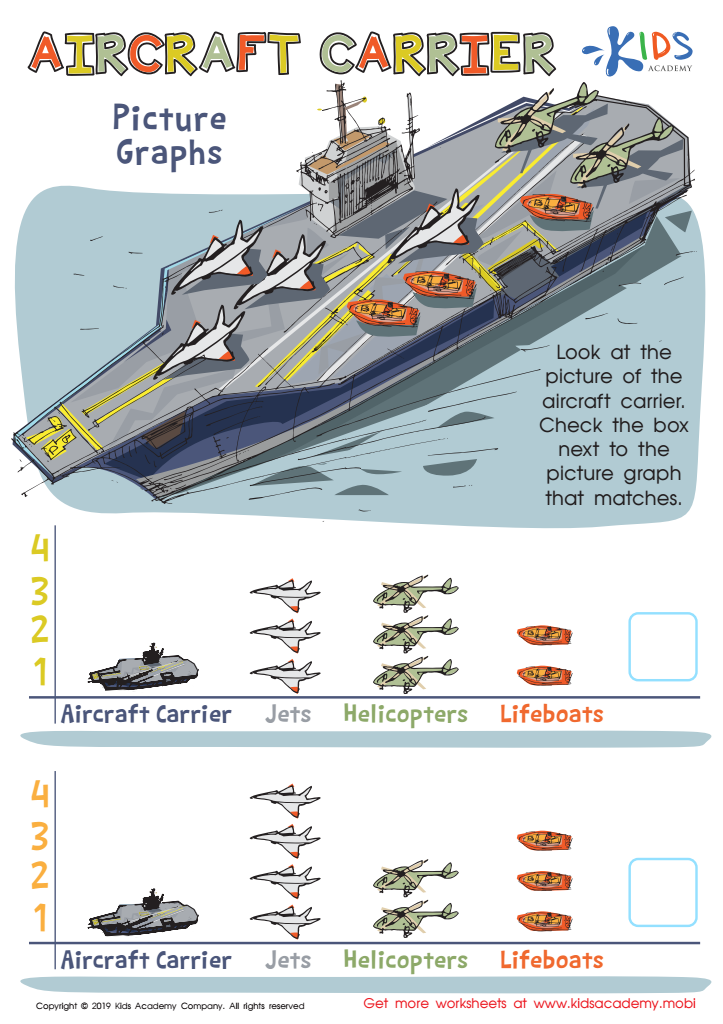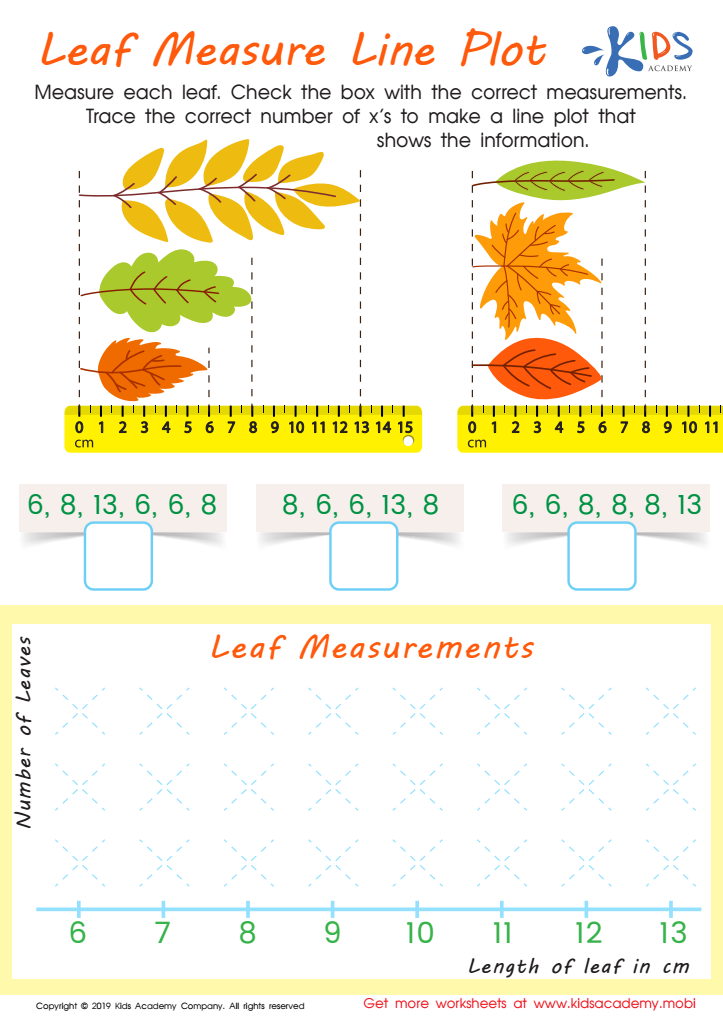Data interpretation Addition & Subtraction Worksheets for Ages 7-8
4 filtered results
-
From - To
Unlock your child’s analytical and arithmetic potential with our Data Interpretation Addition & Subtraction Worksheets tailored for ages 7-8. These carefully crafted worksheets engage young learners in understanding and interpreting data while mastering addition and subtraction skills. The activities include reading simple graphs, charts, and tables, fostering both math and critical thinking abilities. By integrating fun, educational challenges, these worksheets enhance problem-solving skills and boost your child's confidence in dealing with numbers. Ideal for supplemental learning at home or in the classroom, these resources help build a solid mathematical foundation while making learning enjoyable.


Triathletes in Training Worksheet


Farm Stand Mass Worksheet


Aircraft Carrier Picture Graphs Worksheet


Leaf Measure Line Plot Worksheet
Data interpretation, addition, and subtraction are foundational skills that parents and teachers should prioritize for children aged 7-8 because they are crucial for both academic success and daily life applications. At this developmental stage, children's minds are highly receptive to learning basic arithmetic and understanding how to interpret simple graphs and charts.
Firstly, mastering addition and subtraction underpins more advanced mathematical concepts such as multiplication, division, and fractions, making future learning smoother and less intimidating. Children who grasp these basics early are likely to be more confident and proficient in math as they progress through school.
Secondly, data interpretation skills enable children to make sense of information presented in visual formats like bar graphs and pie charts. This is increasingly vital in our data-driven world, where the ability to decode information correctly facilitates informed decision-making and critical thinking. For instance, understanding how to read a simple graph can help children analyze data about subjects such as weather patterns or class performance, fostering analytical skills early on.
Moreover, both skills enhance everyday problem-solving abilities. Tasks as simple as following a recipe, budgeting pocket money, or even playing games often involve arithmetic skills and interpreting data, making children's daily lives more manageable and enjoyable.
In essence, early proficiency in these areas sets the groundwork for a wide range of future educational opportunities and practical life skills, ensuring that children are well-prepared for the challenges ahead.
 Assign to My Students
Assign to My Students















